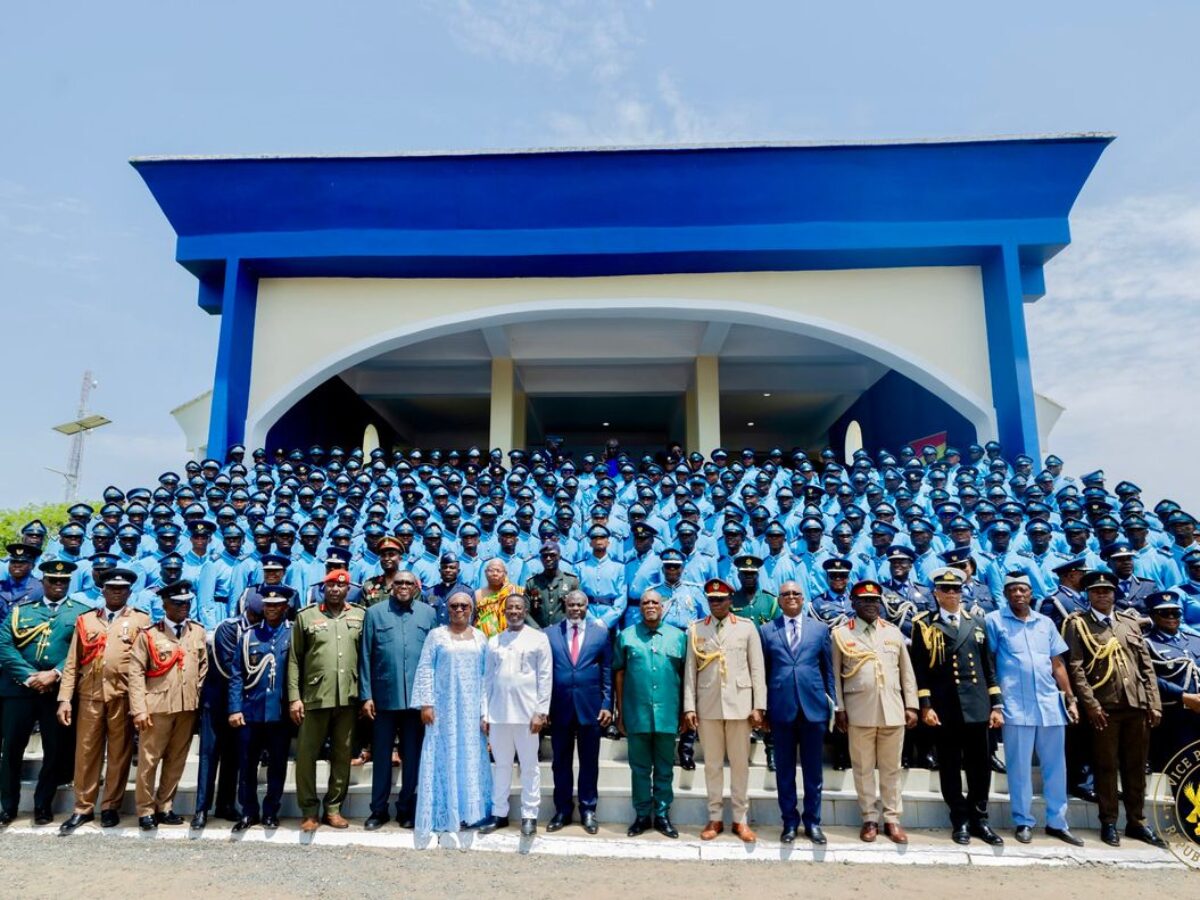By Stanley Kwabla Arku
Government has reaffirmed its commitment to implementing wide-range economic and institutional reforms aimed at enhancing revenue mobilization, improving trade efficiency, and strengthen economic self-reliance.
Delivering a keynote address at the graduation ceremony for Officer Cadets of the Customs Division of the Ghana Revenue Authority (GRA), Vice President Naana Jane Opoku-Agyemang represented by her Chief of Staff, Mr. Alex Segbefia outlined a series of strategic reforms aimed at repositioning the country’s economic foundation.

Among the measures highlighted were a comprehensive review of the tax exemption regime to encourage transparency and stimulate investment, as well as a rationalization of port fees to enhance trade competitiveness. The Vice President also disclosed that government is resuming the restructuring of the GRA to boost tax administration and compliance, a process initially begun under the previous NDC administration.
“As international funding sources continue to shrink, Ghana must look inward to sustain its development. These reforms are not just policy shifts, they are vital steps toward national self-reliance,” she said.
The address also revealed plans to enact a Natural Resources Revenue Management Act to ensure better returns from Ghana’s mineral wealth including green minerals and recent petroleum finds. In addition, the Petroleum Revenue Management Act (Act 815) is also set to be reviewed to maximize gains from the oil and gas sector.
Touching on the importance of the Customs Division in this national agenda, the Vice President emphasized that the newly graduated officers would play a critical role in enforcing trade laws, curbing smuggling, and ensuring that Ghana’s ports become more competitive and business-friendly.

Currently, the Customs Division is operating below capacity, with only 2,635 staff against an approved establishment of over 5,300. The Vice President assured that government is taking steps to address this gap by recruiting more officers and improving their conditions of service.
“You are joining not just a workforce, but the frontlines of Ghana’s economic transformation,” she told the graduates. “Your integrity and efficiency are central to how the world views Ghana as a trade destination.”
The government’s renewed focus on domestic resource mobilization comes at a time when global economic uncertainties have made international borrowing more difficult for African countries.


